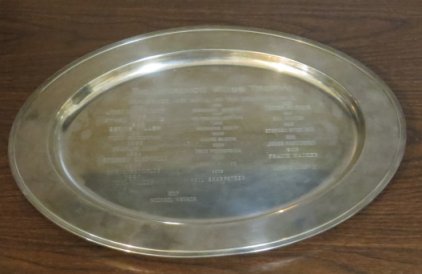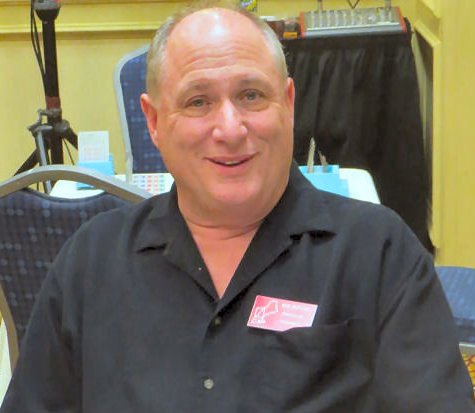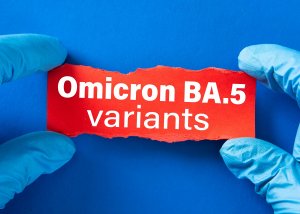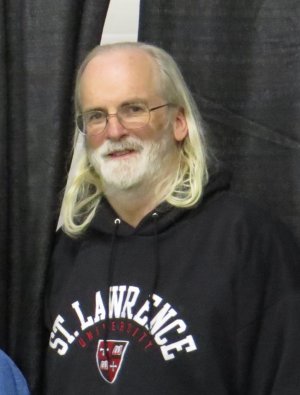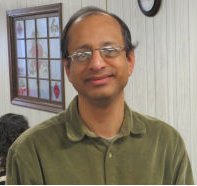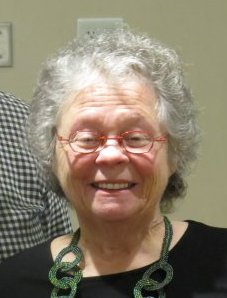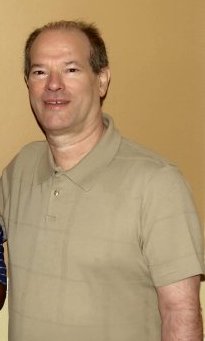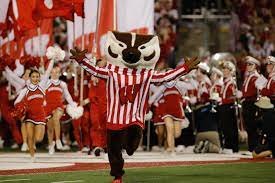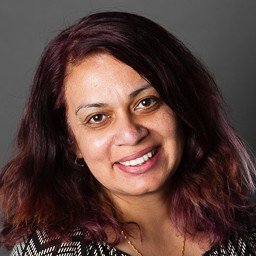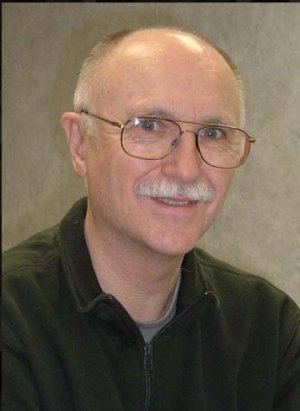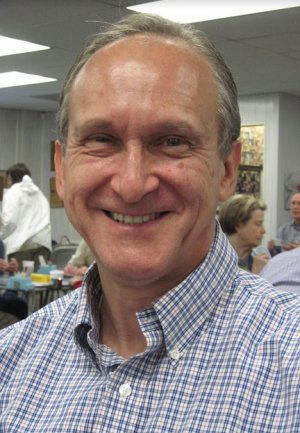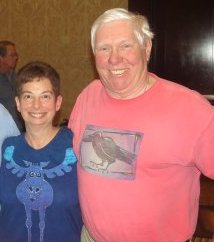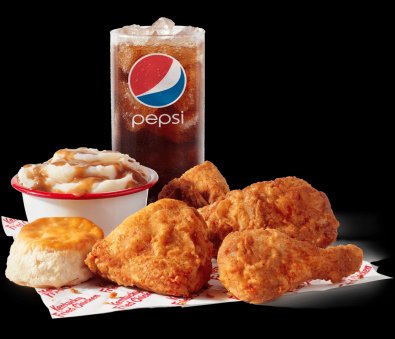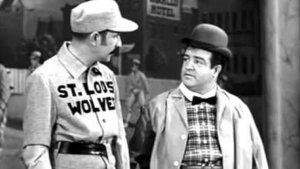Silver point games. Continue reading
Still under construction.
The first tournament of the year was held in Johnston, RI, on the weekend of February1-2. I had no interest in playing in the pairs game on Saturday. Abhi Dutta asked me to team up with him and his partner, Vipin Mayar. I was pretty certain that Eric Vogel would not want to play on Sunday, and so I asked John Lloyd again. The four of us had played in a sectional at the same location in September 2024. That adventure has been described here.
John and I again agreed to meet at the Park and Ride lot on Route 32 near I-84, this time at 8:45. Since John had driven from there to Johnston in September, I volunteered to drive this time. I was a little worried about the return trip. My cataracts had recently been diagnosed, and some kind of precipitation was expected.
I arrived at the lot seven minutes late. It was completely my fault, and I apologized. I left a minute or two after I planned. I planned on stopping at the McDonald’s in the Scitico shopping center, but I missed the turn from Taylor Rd., and when I passed it on Route 190 there was a line. So, I decided to keep going and stop at the one in West Stafford.
Unfortunately, I found myself two cars behind a NETTTS truck2. We only followed it as far as Somers, but its still cost us another five minutes or so as it poked along at 25-30 mph on Route 190.
There was also a slow-moving line at the West Stafford McDonald’s as well. I lost at least another five or ten minutes there.
The worse news was that they messed up my order. Instead of the sausage biscuit with egg that I always ordered, they gave me a bacon, egg, and cheese biscuit. The bacon was tasteless, I don’t like McD’s cheese, and the biscuit had been hardened by time under the heat lamp.
I drove as fast as I reasonably could the rest of the way, but I did not arrive at the parking lot until 8:52. The rest of the trip was uneventful, but it was 9:55 by the time that we reached the Johnston Senior Center. I gave my credit card to John and parked the car. I then got my materials from the back seat. The lunch that I had prepared was there, but I could not find my convention card holder, which contained our convention card, old scoresheets, and my mechanical pencil. I was almost certain that I had remembered to place it there, but I could not find it, and I had no time to spend searching.
We were, of course, the last of the twenty-four teams to register. After a fair amount of effort I found our table, which was U12. John gave me back my credit card, and I then went back to the registration area to obtain a scoresheet and little golf pencil.
One opponent informed us that he had only played in one or two previous team games. His partner did not even know how to keep score. We were scheduled to play eight rounds of six boards. In the first round they bid and made several games that seemed unremarkable to me. Afterwards I told John to compare without me; I intended to search for my convention card holder. My scoresheet was unreadable anyway. I could not write legibly with that tiny pencil on bare paper.
I could not find the convention card holder. Our second assignment was at the same table. I was shocked to learn that we had decisively lost the first round. Usually I am a good judge of our performance. We did, however, win the second round in a close match.
I could not believe the team that we drew for our third round—a team of A players from the Hartford Bridge Club. John and I played against Tom Gerchman and Lesley Myers. Our teammates faced Doug Deacon and Bob Hughes. I did not think that we played well enough to win. I was shocked that our teammates had scored +1700 on the first hand. Evidently Doug and Bob had a disastrous misunderstanding that got doubled. So, after three of eight rounds we had two wins.
We lost the fourth match. I made a serious error in the play. I then ate lunch by myself.
We won only one match in the afternoon. We played against two ladies. John was late getting to the table, and I had painfully shuffled at least one deck at every table. I refused to shuffle again and left the deck for John. He arrived a minute or two later, during which time I had to listen to my LHO declaim about shuffling in spite of the fact that she had arthritis.
That one victory was taken away from us by the director, Tim Hill. On the crucial hand John opened 1♥. The lady to my right bid 2♣. I doubled. When the arthritic opponent asked what my double meant, John hemmed and hawed and then said, “I think that that was a support double for my hearts.”
They ended up playing in a notrump contract. After the play ended, I announced that they had received erroneous information. I had made a negative double showing at least four spades, not a support double showing three hearts. I told them that they could call the director if they felt damaged. They did. Tim took the board to see if their claim as being damaged was legitimate. This took such a long time that we ended up playing on five of the six boards. The ladies complained loudly about this.
Tim later explained to me that there were so many ways that the hand could have gone that he could not determine whether they were damaged. He said that the law said that in that case the party that gave the wrong information gets an average minus. We ended up losing three imps and the match.
At the end of the last frustrating mach I was just ready to hit the road immediately. Fortunately there was no bad weather for the drive back. I had no difficulty whatsoever.
Connecticut’s first tournament was scheduled for the last weekend in March, beginning on Friday the 28th, in Orange. I was on the tournament committee, chaired by Cindy Lyall, that planned and marketed this event. The marketing part was previously handled by the communications director, Ken Steele, who had resigned. Bill Segraves, the president of the Connecticut Bridge Association, said in an email that the communications committee, of which I was a member, was no longer functioning. That was news to me.
I did not really care what was sent to the players with more than 500 masterpoints. They were probably familiar with CBA sectionals. They just needed to know the dates and where to find the flyer. I volunteered to write an email to be sent to the players with less than 500 masterpoints in February. I composed them in HTML for my MailChimp account. I sent a test version (posted here) to the other members of the committee. They all seemed to like it a lot. Well, almost everyone liked ti. John Lloyd thought that it was too long, and Cornelia Guest did not like the phrase “less than 500 masterpoints”3.
Unfortunately, Bill wrote that “Mike is not authorized to send the email.” So, I had to rework the text to use Pianola to send it. Since I never received the email itself, I was not able to post it. The text is posted here. I asked for the photo of the playing area to be included. Even with that, I think that the final version was better than nothing, but it was a poor substitute for my original submission.
Early in the year Eric Vogel agreed to play with me in both pairs sessions on Friday and Saturday. I sent emails to the usual suspects concerning a partner and teammates for the Sunday Swiss. Joan Brault agreed to play with me, but the only nibble that I had for teammates was an email from Cornelia Guest, the CBA’s tournament coordinator, that Joel Wolfe was looking for teammates. I immediately sent him an email to see if he was interested in teaming up with Joan and me, but he never responded. That was quite disappointing. Prior to the pandemic I had always played in the team game on Sunday, and nearly always I had a very enjoyable time.
On Friday morning I fixed myself a sandwich of corned beef, Swiss cheese, and lettuce and inserted it into my backpack along with a bag of Utz potato chips. I left the house at 8:15. The traffic was lighter than I expected, and the construction area south of I-84 posed no difficulty. I made my usual stop at McDonald’s in Cromwell. The price was $.11 cheaper than in Hartford and much cheaper than at any of the three stores in Enfield. I arrived at St. Barbara’s Church in Orange, CT, at a little after 9:30. Eric was already in line to purchase our entries, the cost of which had risen to $18 per person per session.
Eric and I had recently revised our approach to slam bidding when we had a fit in a major suit. Previously we had leapt to game to show a minimal holding. Instead jumps in the major suits would show Picture Bids—a high honor in the trump suit and a strong side suit. Our approach to bidding of controls was also changed slightly. This approached was recommended by Vic Quiros in a series of columns in the Bridge Bulletin.
In the morning session on Friday we sat East-West. We had two opportunities within the first six hands to put our new methods into practice. On hand #12 I opened 1♦ in the West chair. Eric bid 1♥. I bid 1NT. Eric could have put in the game force by bidding 2♦, but he elected to bid 4♣. I was not sure what it meant. I bid 4♥, and he just jumped to six. This was exactly the kind of thing that we wanted to avoid. We got 79 percent of the masterpoints, but we could have done better.
If he had bid 2♦, I would have bid 2♥, and he would have known that we had nine hearts. Then after a couple of exchanged cue bids, he could have visualized thirteen tricks and bid the granny.
On hand #16 I opened 1♥, Eric bid 2♦. I rebid hearts. He used Kickback to determine that I had the three missing key cards. He then bid 6NT.
Since we were already forced to game, I think that he should have bid the cheapest control, which was in spades. I could bid 3♦ to show the ace. He has the ♣K to show, but he must bid at the four-level. I would bid 4♥ to show a control. After he bid 5♦, it would be time to put up or shut up. I have not yet told him about my other two heart honors, had he still seemed interested in continuing. I was in a bidding mood that day. I think that I would have bid 7NT.
The other interesting hand in the morning was #22. Eric and I got am undeservedly good score on it because not only did our opponents not find the game in spades, they also took only nine tricks. Don’t ask me to name the tricks that we took.
Shekhar Rao asked me how he and his partner, Shashank Srinivasamurthy, could have bid the spade game with the North-South cards. They had been playing in the limited point game. After examining the results I told him that only one of the fifteen N-S pairs in the open section accomplished that feat with 22 points and a seven-fit, and they were not considered one of the better pairs when it came to bidding.
I took advantage of the opportunity to explain to the guys that they needed to have an agreement about what a preempt in the fourth seat would show. It cannot be strictly preemptive because both of the opponents have passed. So, it should probably show a minimum opening hand with six pieces. Bidding at the one-level and then rebidding the same suit at the two-level would show at least one trick extra. So, if responder had invitational values, he should be looking for game after that sequence.
For the morning session Eric and I scored a little above 51 percent, which was rewarded with 1.14 silver points.
Eric also had brought a sandwich for lunch. We ate together and discussed a few of the hands. Joel Wolfe came by and asked if he could have some of my potato chips. I said, “Of course.” He did not say anything about playing on Sunday.
Bill and Linda Green, the Vice President of the CBA, announced the winners of some of the awards over the last year. Linda was actually standing on the chair at which I ate lunch. I found this method of distributing awards annoying, but, then again, I have become a real curmudgeon since the pandemic and especially since the last presidential election.
Our first two hands in the afternoon session were against Bill and Paul Proulx. I knew that they played an unusual system in which the 1♣ opening had multiple meanings and could be made with only one club. The responses were transfers. Eric and I had discussed this at lunch. We decided that our interference at the one level would be transfers, at the two level DONT for two-suited hands, and natural at the three-level.
As it happened, I, sitting South, opened the bidding on both hands, but Eric had two weak hands. On the first one Paul, East, played 3♣ and made it. On hand #6 I opened 1NT and Bill overcalled 2♥, which was followed by two passes. I probably should have just passed. If Eric had a suit, he would have bid.
Bill redoubled, but I did not see it. I rarely miss a bid, but I definitely missed that one. Eric took his time, but then passed, as did Paul. I was somewhat upset that the bidding was over and picked up my cards.
Before Eric Bill led, Bill asked to see Eric’s convention card. He asked Eric whether our doubles, which the card says are negative at the three level were also negative at the two level. Eric incorrectly stated that they were negative at both levels. I began to correct him, but Bill stopped me. The whole thing was embarrassing.
In the end Bill made the bid, we received another very bad score, and I was flustered. If I had seen the redouble card, I would have bid 2♥, and the result would have been better. It took me several rounds to regain my equilibrium.
I found out in the evening about the redouble, and I apologized to Eric on Saturday morning about my pass.
I made one other costly miscue in my opening lead against Mike Heider and Mark Blumenthal on hand #16. They had bid 3NT.
The standard lead in this situation was fourth from longest and strongest, which in this case would have been the ♣7. However, the stronger hand would be on my right. I did not want to give away what might be the setting trick. Also I did not have a likely entry outside of the spade suit.
Instead I selected the singleton ♥10. Since East did not use Stayman he was unlikely to have four hearts. So, my partner probably had at least five. My 10 might be good enough to set up the suit for him.
As you can see, my lead allowed them to take the first ten tricks. If I had led the spade, we would have taken the first five.
We did much better on the other hands. We finished with a 55 percent game and won 1.52 silver points. It had been a long time since I had scored above 50 percent on two consecutive sessions of Open Pairs at a CBA sectional.
The drive home was uneventful. I did not sleep too soundly. I found myself awake at 3am. I got up for a while, read a chapter or so of Rain Dogs by Adrian McKinty, and went back to sleep.
On Saturday morning I fixed myself a sandwich of the remainders of a roast beef dinner before I left. I arrived at the tournament at about 9:30 and bought our entries.
Our results on Saturday were remarkably similar to what we did on Friday. In the morning our score was 51.74 percent, which left us just our of the money because the three top scores in our section were registered by B players.
We got off to an unbelievably good start on the first hand I somehow convinced myself that Eric, sitting East, had a very good hand. Since I held a six-loser hand with support for his clubs, I used Blackwood to ask for key cards. When his response indicated that he had 0 or 3, I figured that we had all the key cards and bid 6♥ without even asking about the queen of trump.
As you can see, Eric actually had a minimum opening bid. The opponents held three aces. Fortunately, South decided to lead the ♥A, which allowed him to pitch his spades on diamonds. He also led hearts from his hand, which allowed him to finesse the ten. So, we got 100 percent on this hand. Incredibly, one other pair stumbled into this horrible contract, but they were defeated by two tricks.
By our new method of bidding these hands our auction should have been 1♥-2♣; 2♥-3♥; 3NT (non-serious game try)-4♥ (very reluctant).
One of our worst hands was #8, played against two players whom I did not know, Paresh Soni and Justine Robertson. I was in the West chair declaring 4♠. The same contract was played by all of the other pairs in our section.
At trick 1 Paresh led the ♣4. I counted my losers—two possible in hearts and one in clubs. Then I thought again. What if South had four clubs? If I ducked, she could give him a ruff at trick 2, and I would be down if the hearts were poorly placed.
Then it occurred to me that North was leading fourth-best, I would still lose a trick to North’s king. The only times that playing the ace was wrong was if North began with the king and one or two others. Who would lead low from either of those holdings? No one that I played with. I would be willing to bet that no other North player selected that card to lead. Anyway, I played the ace.
Eric bought a lunch at the tournament. We ate together again. I explained why I only took ten tricks on hand #8. Bill gave out more awards.
Our best session was the last one. We scored 56.47 percent, which was good for fifth, but it was only 1.51 percentage points before the pair in first. We received 2.9 masterpoints.
The most astounding hand of the tournament occurred in the fourth round of the second session. We were sitting North-South. Eric was awarded the privilege of bidding the hand shown at the left. Our opponents were Victor Xiao and Lin Li.
After I opened 2♣ Eric bid 2♥. We played Kokish relays, and so his response indicated a bust—no aces, no kings, and at most one queen. I bid 2♠. Eric thought that his four trumps and a singleton was enough to raise to game. It wasn’t. I only made three. The field was pretty evenly divided between the game bidders and those who stopped at (and made) three.
When Eric lay down his 4-4-1-4 masterpiece I exclaimed “Wow! Eight high!” I then proceeded to count the pips in the center of of the cards: 17 (7+5+3+2) in spades, 19 in hearts, 7 in diamonds, and 16 in clubs for a total of 59. I told the table that this was the second-worst hand that I had ever seen.
After the hand Victor asked me about it. He was struggling to compute the lowest possible total. I explained that it was three sets of 2-3-4 combinations plus one 5 for a total of 41.
We bid and made one slam, but I thought that we might have bid another on hand #16. Eric, sitting north, opened 1♠. I had enough to bid Jacoby 2NT, but I was determined to take it slow. I bid 2♣. I don’t remember the details, but eventually Eric jumped to 4♠.
If he had shown his diamond singleton, I would have bid 2♠ to set trump. He could then show a club control. I would bid 2NT to show a high spade honor and no more controls. He could then bid 3♠ to show both a heart control and a club control. I would bid 4NT, and after he showed 0 or 3 key cards, I would know all fourteen of his points and have no worries about trumps. I would almost 4certainly have bid 6♠.
Afterwards, Eric asked why I did not just bid 2NT to start with. He would have shown his singleton by bidding 3♦. I would be forced to use Blackwood immediately or bid 4♦. The former is a big non-no with a worthless doubleton. The latter will probably induce him to sign off at 4♠.
I checked the results to see if this would have made a significant difference. We finished in fifth place, which was pretty good, but if we had bid 6♠, we would have vaulted past everyone in front of us, including the winners, who were the only pair that found the slam.
Cindy Lyall called for a “debriefing” meeting of the tournament committee. The only bad side to the tournament was the poor showing of the 499er group on Sunday. I volunteered to ask the director, Tim Hill, whether I could get a file of the results for specific events. He never responded, but I figured out how to “scrape” the web page that provided “recaps” of the events. I shared the information with the rest of the committee.
A big problem for the tournament in August is that no one on the committee wants to act as tournament manager. I remarked at the last meeting that I did not understand why anyone would want the position. I wonder what the other units do.
Since I was no longer on the HBC board, I tried to keep Linda Starr (who was) apprised of the board’s attempt to nail down dates for sectionals in 2025 and 2026. There were conflicts with the HBC’s annual meeting in the fall of 2024.
John Lloyd asked me to play with him in the Sunday Swiss of the sectional held in Johnston, RI June 7-8. Our teammates were Mike Shore, who moved from the Hartford area to Rhode Island and Rob Stillman. I knew both of them well, but I had played with neither as a partner or teammate.
I did not encounter any of the difficulties that I faced in the tournament in February. I purchase my usual sandwich at McDonald’s, consumed it while I was driving, and arrived fourteen minutes before the agreed-upon time of 8:30. As that time approached I decided to consult my cellphone to see if John, who is usually prompt, had called. I discovered a text that said that he was running a few minutes late, but he would be happy to transport us to Johnston in his Audi. He appeared at 8:50, and we reached the tournament at 9:40.
We quickly found Rob and Mike and purchased our entry. There were only fifteen teams. Since we were one of the last three teams, we started in a three-way match that consumed the first two of the scheduled eight matches. I cannot explain why they decided to have eight rounds that each contained six-board matches instead of six rounds of eight.
This was a somewhat peculiar experience for me. I had more than twice as many masterpoints as the other three players combined. There was only one other team there with representatives of the HBC and no one else at all from Connecticut.
In the first round John and I played against Tink Tysor from New Hampshire and Denise Bahosh from Central Massachusetts. I had known Tink for years and even was his partner in a regional event once. I knew Denise from working at the district. I did not know the teammates of Denise and Tink whom our partners played against in the second round. We were lucky. We ended up tying that match, but we lost to a much more experienced team in the other half of the three-way.
We also lost the next two matches, but I was not impressed with the play of our opponents. In the fourth round we lost because I took a finesse the wrong way in a notrump contract. Here is what happened. My left-hand-opponent led a low diamond on the first trick. I held AJ9. The other opponent played the king, which in every carding system that I have ever used or seen, denies the queen. I played the ace. Later RHO led a diamond. Knowing that she did not have the queen, I played the 9, which was captured by the 10. LHO led a third diamond, which RHO won with the queen. It was that kind of a day.
I ate lunch with my teammates. They asked me about an issue with the DONT defense against a 1NT opening bid. Rob had employed the 2♠ bid when he had a pretty strong hand. Mike said that his understanding was that the system used a double followed by a spade bid for that kind of hand. I explained that may players, including myself, ignored that distinction because almost all responders ignored the double and continued with their normal response. In that case the overcaller had advertised to them that he/she had most of the outstanding points. In the likely event that they won the auction, the declarer, being able to see half of the deck, could probably guess the suit that would have been bid, but the advancer would gain far less information.
Rob and Mike also asked what to do if your partner opened 1NT, you used Stayman with a hand that had slam interest, and your partner rebid 2 of your suit. I explained that bidding 3 of the other suit was used by almost all good players to indicate agreement with the suit and force at least to game. 4NT after that by either player would be Blackwood.
The fifth round was the low point of the tournament for me. We lost to Ben Bishop’s team of HBC players by one point. It was my fault. John put me in a good 5♠ contract. I won five of the first seven tricks and saw a certain route to the last six. I just needed to draw the last trump first. However, I called, “Club, please” instead of “Queen of clubs”. So, I carelessly went down. It was the only boneheaded play that I made all day, but it could not have come at a worse time.
There was one other interesting hand in that round. Diane Tracy opened 2NT in the third seat. I was the next bidder. I held six hearts headed by the AKQ, five clubs headed by the KQ, and two singletons. For the first time in my life I chanced an overcall of 2NT. My 3♥ bid was passed by all.
John’s dummy included a singleton heart, a doubleton club and the ♦K. It looked to me like I would take five or six hearts and one club. Ben led a diamond. I was not about to put up dummy’s only honor in front of at least 20 points. Diane took it with the queen and then surprisingly led the ♦A. I paused to reexamine the situation. They had squandered two chances to lead a trump and make my task impossible. The bad news was that I had to give them another opportunity.
I led my ♣K. Diane took it and led another club, which my queen devoured. I then led a third club and
They took the aces of clubs and diamonds and then led another club, which I won. I then ruffed a third club in the dummy and discarded my spade singleton on the ♦K. I then went back to my hand with a spade ruff and led my three high hearts. I lost one more club and the ♥J, but I still managed nine tricks.
Incredibly, the same thing apparently happened at the other table. E-W score 140.
We also lost the sixth round. I had terrible cards and was not a factor. However, the seventh round, in which we faced a significantly better team, went better. We won the round when Venky Venkatarami insisted on playing the last board with less than five minutes remaining on the clock. He went down two, and that was the margin of our victory.
We lost the last round against another good team, but I played several hands well. The difficulty occurred when John opened 1♠, and the next person overcalled 2♥. I had a pretty good hand with five diamonds and four good clubs. I made a negative double. John did not understand my intention and passed. The opponents took nine tricks.
We ended up in fourteenth place. The team that we defeated in the seventh round was last.
It was a horrible tournament, but I enjoyed the last two rounds.
1. For the first time in recent memory the time for the Sunday Swiss event was moved from 9:30 to 10:00. So we arranged to meet a half-hour later than previously.
2. NETTTS is the New England Tractor Trailer Training School, which was the bane of drivers in northeastern Connecticut. Trucks driven by students are often seen struggling to reach the speed limit on heavily traveled roads. I once saw one that was in the first spot at a stoplight with its right turn signal blinking. When the light turned green the truck executed the turn successfully, but not one of the six vehicles behind it was able to enter the intersection before the crossing traffic had the green light.
3. My opinion was that the 0-500 group needed to be persuaded to attend. The other players merely needed information. Since we were essentially offering the same product as on previous recent occasions, presumably they would come if they wanted to. The phrase “less than” is stylistically appropriate for anything that is not countable, in the sense of 1, 2, 3, not in the sense that rational numbers are countable. Thus, one would say less than $50, but fewer than fifty one-dollar bills.
4. The worst was a 53-pointer that I held at the Simsbury Bridge Club back when I was playing with Dick Benedict.













